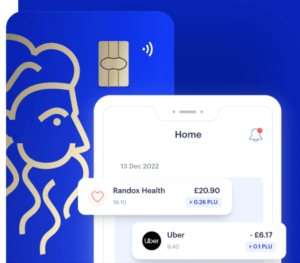In the world of cryptocurrencies, privacy has become an essential concern for many users seeking to protect their financial transactions and personal information. Privacy coins have emerged as a solution to address these concerns by offering enhanced anonymity and confidentiality. In this article, we will explore the top 5 privacy coins that excel in safeguarding your transactions anonymously.
1. Monero (XMR)
Monero, often regarded as the pioneer of privacy coins, has gained significant popularity due to its advanced privacy features. With its unique technology, Monero utilizes Ring Signatures, Stealth Addresses, and Confidential Transactions to ensure that the sender, receiver, and transaction amount remain completely confidential. By using a decentralized and private ledger, Monero delivers strong anonymity to its users, making it a top choice for privacy-focused transactions.
2. Zcash (ZEC)
Zcash is another prominent privacy coin that empowers users with the option to conduct shielded transactions. Zcash transactions can be either transparent (similar to Bitcoin) or shielded, which utilize zk-SNARKS (Zero-Knowledge Succinct Non-Interactive Arguments of Knowledge) to obscure transaction details. This allows users to selectively disclose transaction information while keeping the rest of the details private. Zcash strikes an ideal balance between privacy and transparency.
3. Dash (DASH)
Dash, known for its fast and low-cost transactions, also offers enhanced privacy through its PrivateSend feature. It employs a CoinJoin mixing technique, where multiple transactions are combined to obscure the original source and destination of the funds. Dash’s privacy features are optional, providing users with the flexibility to choose between private or public transactions based on their preferences.
4. Verge (XVG)
Verge focuses on offering privacy by utilizing both Tor and I2P networks to obfuscate IP addresses and ensure untraceable transactions. By using these privacy-centric networks, Verge enhances the confidentiality of its users’ data and IP information, making it harder for anyone to track their transactions. Verge’s commitment to anonymity has gained it recognition among privacy coin enthusiasts.
5. Grin (GRIN)
Grin is an open-source cryptocurrency that leverages the MimbleWimble protocol, designed to enhance privacy and scalability. Through its innovative implementation, Grin eliminates the need for historical transaction data, resulting in a compact blockchain. This approach enhances privacy by reducing the risk of blockchain analysis, making Grin an appealing option for users valuing anonymity.
Privacy Coin Comparison
| Privacy Coin | Privacy Technology | Transaction Anonymity | Optional Privacy | Scalability | Community Support |
|---|---|---|---|---|---|
| Monero (XMR) | Ring Signatures, Stealth Addresses, Confidential Transactions | High | No | Moderate | Strong |
| Zcash (ZEC) | zk-SNARKS (Zero-Knowledge Succinct Non-Interactive Arguments of Knowledge) | High | Yes | Moderate | Active |
| Dash (DASH) | CoinJoin Mixing (PrivateSend) | Moderate | Yes | Good | Established |
| Verge (XVG) | Tor and I2P Integration | Moderate | Yes | Moderate | Growing |
| Grin (GRIN) | MimbleWimble Protocol | Moderate | Yes | Good | Developing |
Conclusion
In a world where financial privacy is becoming increasingly valued, privacy coins play a pivotal role in safeguarding user transactions and protecting personal information. The top 5 privacy coins mentioned in this article – Monero, Zcash, Dash, Verge, and Grin – each offer unique privacy features and capabilities to ensure anonymous transactions.
When utilizing privacy coins, it is essential to exercise caution and conduct thorough research, as regulatory developments and technological advancements can impact the level of privacy they provide. Always choose a reputable wallet and stay informed about updates in the privacy coin space to make the most of these revolutionary cryptocurrencies and their privacy-enhancing benefits.
FAQ
u003cstrongu003e1. What are privacy coins?u003c/strongu003e
Privacy coins are a special category of cryptocurrencies designed to provide users with enhanced anonymity and confidentiality during their transactions. Unlike traditional cryptocurrencies, which may expose transaction details and wallet addresses, privacy coins employ various cryptographic techniques to ensure that the sender, receiver, and transaction amount remain private.
u003cstrongu003e2. Why do I need privacy coins?u003c/strongu003e
Privacy coins offer an extra layer of security and anonymity, which is particularly important for individuals concerned about their financial privacy. By using privacy coins, you can prevent your transaction history from being traced back to your identity, safeguarding your financial data from potential adversaries.
u003cstrongu003e3. How do privacy coins achieve anonymity?u003c/strongu003e
Privacy coins use various privacy-enhancing technologies like Ring Signatures, Zero-Knowledge Proofs (zk-SNARKS), and CoinJoin mixing to obscure transaction details. These technologies make it difficult for outside observers to link transactions to specific users, ensuring that transaction data remains confidential.
u003cstrongu003e4. Are privacy coins legal to use?u003c/strongu003e
The legality of privacy coins varies depending on the jurisdiction. While privacy-focused features may raise concerns for regulators, privacy coins themselves are generally legal in most countries. However, it’s essential to comply with local regulations and use privacy coins responsibly and lawfully.
u003cstrongu003e5. Can I use privacy coins on regular cryptocurrency exchanges?u003c/strongu003e
Yes, many privacy coins can be traded on various cryptocurrency exchanges. However, some exchanges may have specific regulations or restrictions regarding privacy coins due to their privacy features. It’s recommended to check the exchange’s policy before trading privacy coins.
u003cstrongu003e6. Are privacy coins completely untraceable?u003c/strongu003e
While privacy coins significantly enhance transaction confidentiality, they are not entirely untraceable. Some privacy coins offer optional privacy features, and users may choose to engage or disengage them. Additionally, external factors and transaction patterns may potentially provide clues about the parties involved.
u003cstrongu003e7. What are the risks associated with using privacy coins?u003c/strongu003e
Using privacy coins may have some risks, including potential regulatory scrutiny, lack of merchant adoption, and limited mainstream acceptance. Additionally, the privacy features could attract illicit activities, leading to increased scrutiny by law enforcement agencies.
u003cstrongu003e8. Can I use privacy coins for legal and legitimate transactions?u003c/strongu003e
Absolutely! Privacy coins can be used for both legal and legitimate transactions, just like any other cryptocurrency. Their enhanced privacy features can be valuable for protecting your financial data and identity, even for lawful transactions.
u003cstrongu003e9. How do I store privacy coins securely?u003c/strongu003e
To store privacy coins securely, consider using reputable cryptocurrency wallets that support the specific privacy coin you intend to store. Hardware wallets or software wallets with strong security features are recommended for keeping your privacy coins safe from potential hacks or theft.
u003cstrongu003e10. Which privacy coin is the best for me?u003c/strongu003e
The best privacy coin for you depends on your specific needs and preferences. Each privacy coin mentioned in the article—Monero, Zcash, Dash, Verge, and Grin—offers unique features. It’s essential to conduct thorough research, understand their technology, and assess their suitability for your use case before making a decision.



